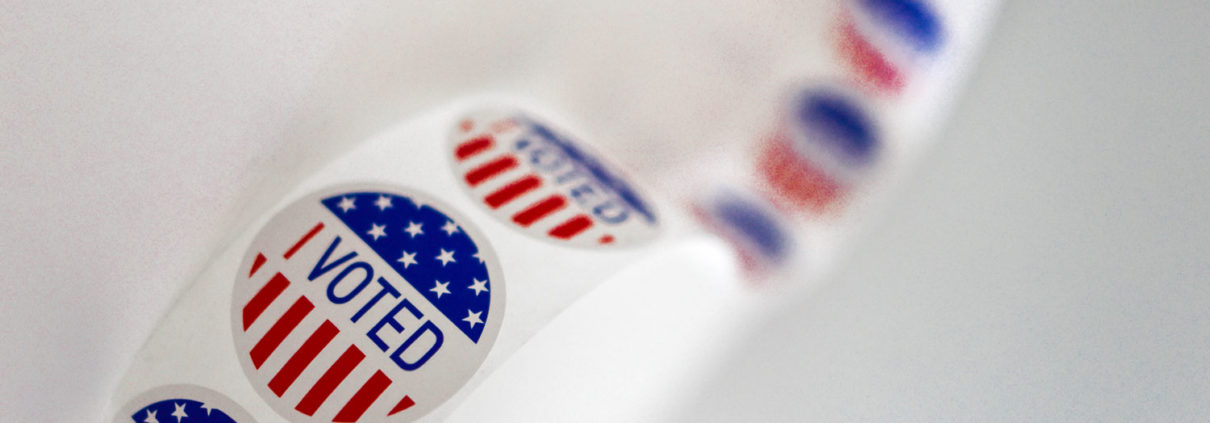Improving Investor Behavior: Keep Politics Out of Your Portfolio
With the election a short 45 days away, the news stream is unrelenting. Political TV ads, postcards, and of course those phone calls during the dinner hour – it’s an all-out media assault designed to convince you that if the “other guy” gets elected, the world is sure to end. It’s enough to elicit one of three emotional responses: either anger and outrage toward the opposition and confirmation bias toward your selection, utter fear and terror at what may or may not happen, or complete apathy toward the whole process. Regardless of where you stand, it’s important to recognize the effect that this election might have on your portfolio… or lack thereof.
This election, which is somehow on everyone’s mind and on few people’s tongues, will likely end up not having a substantial impact on the market. That may sound outlandish to many, but there is quite a bit of historical evidence to support this viewpoint. Over the long haul the stock market does well under both Democrats and Republicans. The average return on the S&P 500 from 1926 through 2019 is about 10 percent per year according to Investopedia. That’s with democrats, republicans, independents and people from all walks of life contributing to the direction of our country.
This is easy to forget with the constant bombardment of negative news. We’re led to believe that if the election results in the other guy taking office, taxes could increase, the market could crash, so on and so on. The simple fact is that a market crash based solely on who wins the election is highly unlikely. So instead, let’s focus on what we know to be true, the things that won’t change when the sun rises November 4th.
Short Term Volatility Should Not Cause Long Term Mistakes
As they say, self-inflicted injuries are not cause for workman’s comp. On and around the election day we can expect increased volatility. People will react, or panic; they will let their emotions get the best of them, and they will make decisions that will drive the market up and down. Our goal is to not be one of them. We want to be the level heads in the room, understanding that though volatility will increase in the short term, over the long-term things will level out and ultimately continue higher. We need only to look back in history to see this same lesson repeated time and again. The night Trump was elected overnight futures dipped by more than 4 percent. By market close the next day stocks had rallied. A month later they were making all-time highs. Recall the forecasts of an economic and financial Armageddon?
Those Who Stay Invested Do Better Than Those Who Try to Time the Market
Let’s say you could go back to 1896 and invest $10,000 in “the market” (ETFs and other collective “market” funds didn’t exist back then, so this is purely a thought exercise) and never touched it. Today, you’d have over $7 million – not a bad return. But what if you had only invested during the years your preferred party was in the White House? Your total return drops to less than $1 million. This same logic applies to people hoping to take advantage of the increased volatility around the election. My guess is some of you read the paragraph above and thought, “Great! This will give me the chance to buy low and sell high.” While we’re big fans of investing in companies when they are temporarily down in price or “on sale”, trying to “time the markets” is a fool’s errand. In over 40 years as a financial advisor I’ve never met anyone able to do this with any level of consistency. Time in the market will always beat timing the market.
The World Will Continue On
First off, it’s important to note that markets don’t really care if you like the president. According to data done by Invesco, “Some of the best returns in the market came when the presidential approval rating was in the low range of 36% and 50%.” IE some of the best returns happen when more than half the country doesn’t like what the president is doing. And while the rhetoric is seemingly slimier than in years passed it’s nothing compared to what our country saw in its early formative years with names like Washington and Jefferson. Even a viewing of Hamilton will remind you that our country has seen some ugly politics and will likely see them again in the future. Do not let emotion or fear drive your decisions.
The Things That Matter Won’t Change
Purchasing a share is the equivalent of purchasing a part of the business. It’s a blunt fact, but one that’s easily forgotten. The mindset is one of being an owner rather than that of a renter. These companies make valuable products and services, make a nice profit in what they do, reinvest a portion of those profits back into their business, and distribute a portion of those profits to their owners, the shareholders. That mindset is entirely different that renting a stock, attempting to purchase it at X, hope it goes up by Y, then sell it at Z, in order to spend the profit. Instead, focus on consistent cash flow. That’s why we favor dividends: they’re real cash payments typically resulting in consistent, growing cash flow. And they don’t require selling your investments in the hope of generating cash to live on or hoping to make a profit. In this scenario, inflation is the only real concern, and this tends to be affected more by monetary policy than who occupies the White House or Congress.
The Flood of Bad News Will Bury the Good
What would it look like if presidential candidates had to record and air an ad in support of the other guy? Wouldn’t that be enlightening? What does one candidate admire about the other? What have they done well? This is so far out that it’s almost laughable, which is a real shame. What if the leaders of our future took the time to listen, inspire, encourage, and generally try to unite folks in pursuit of a common good? But the unfortunate reality is that for almost a year heading into an election, bad news will dominate the good. I wish my noise cancelling headphones worked on negative stories. It would give me the ability to better hear the progress private companies are making in engineering, design, innovation, even space travel. Think about that for a second: we’re not only making reusable spacecraft, we’re actually at the point of realistically putting a man on another planet for the first time ever. Here on earth doctors and scientists have gone from recognizing the early signs of a completely new virus to developing a method for accurately testing it. This is all while trying to create a vaccine from scratch in record time, just six months! The rhetoric may be all negative, but reality is far from it.
Wouldn’t it be great if news like that was permeating our minds? Part of improving investor behavior is guarding your mind. Your attention is your property: don’t let it be taken from you with bad news. It is distracting and distorts your thinking. Most importantly it can cause bad investor behavior.
I believe we all have a choice in terms of what we listen to, what we believe, our responses, and our mindset. To paraphrase Jeff Bezos, our country embraces builders who start something from scratch. We nurture entrepreneurs and start-ups with stable rule of law, the finest education system in the world, the freedom of democracy and a deeply accepted culture of risk-taking.
America is far from perfect, but we’re still pretty darn good. I have never been more optimistic about our future. Good investor behavior includes keeping politics out of your portfolio.
Steve Booren is the Owner and Founder of Prosperion Financial Advisors, located in Greenwood Village, Colo. He is the author of Blind Spots: The Mental Mistakes Investors Make and Intelligent Investing: Your Guide to a Growing Retirement Income and a regular columnist in The Denver Post. He was recently named a Barron’s Top Financial Advisor and recognized as a Forbes Top Wealth Advisor in Colorado.










